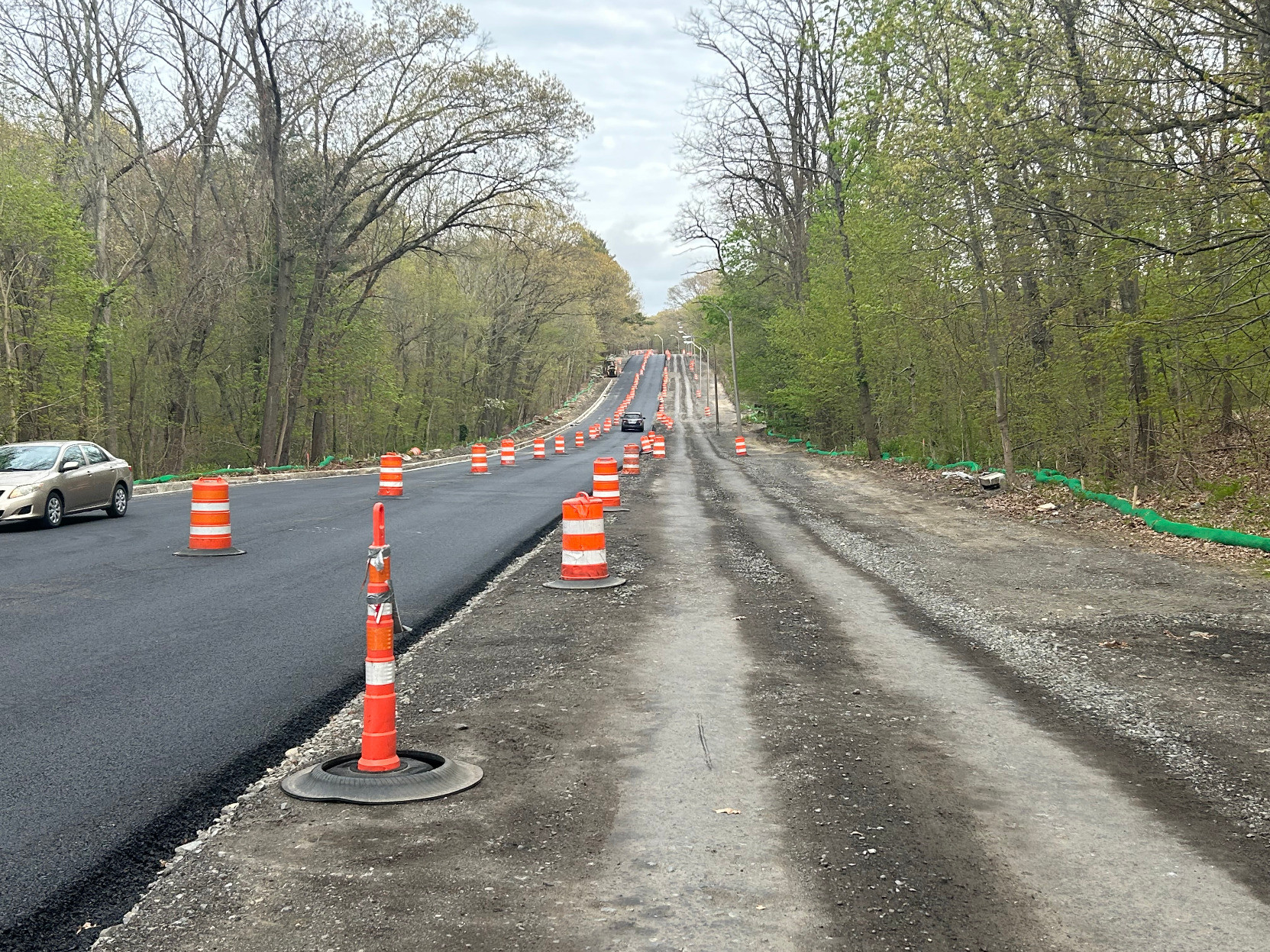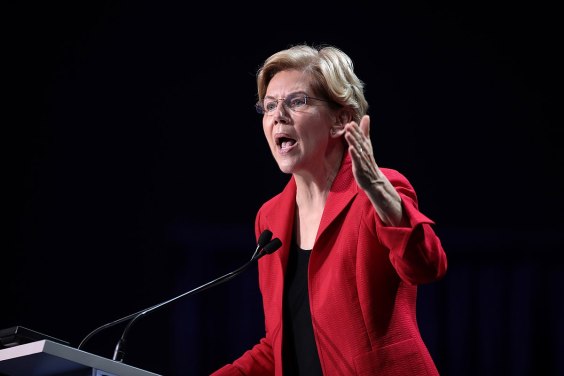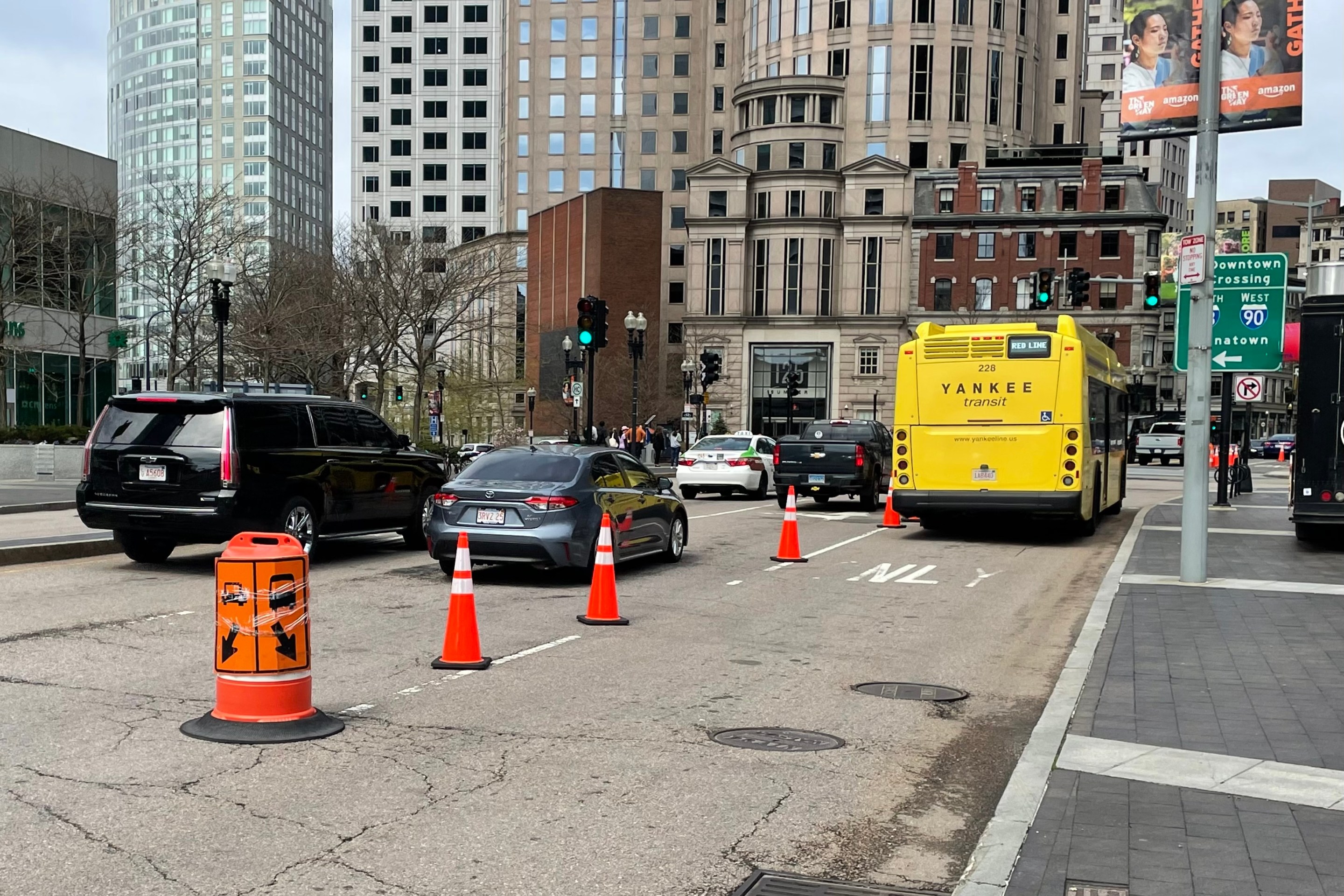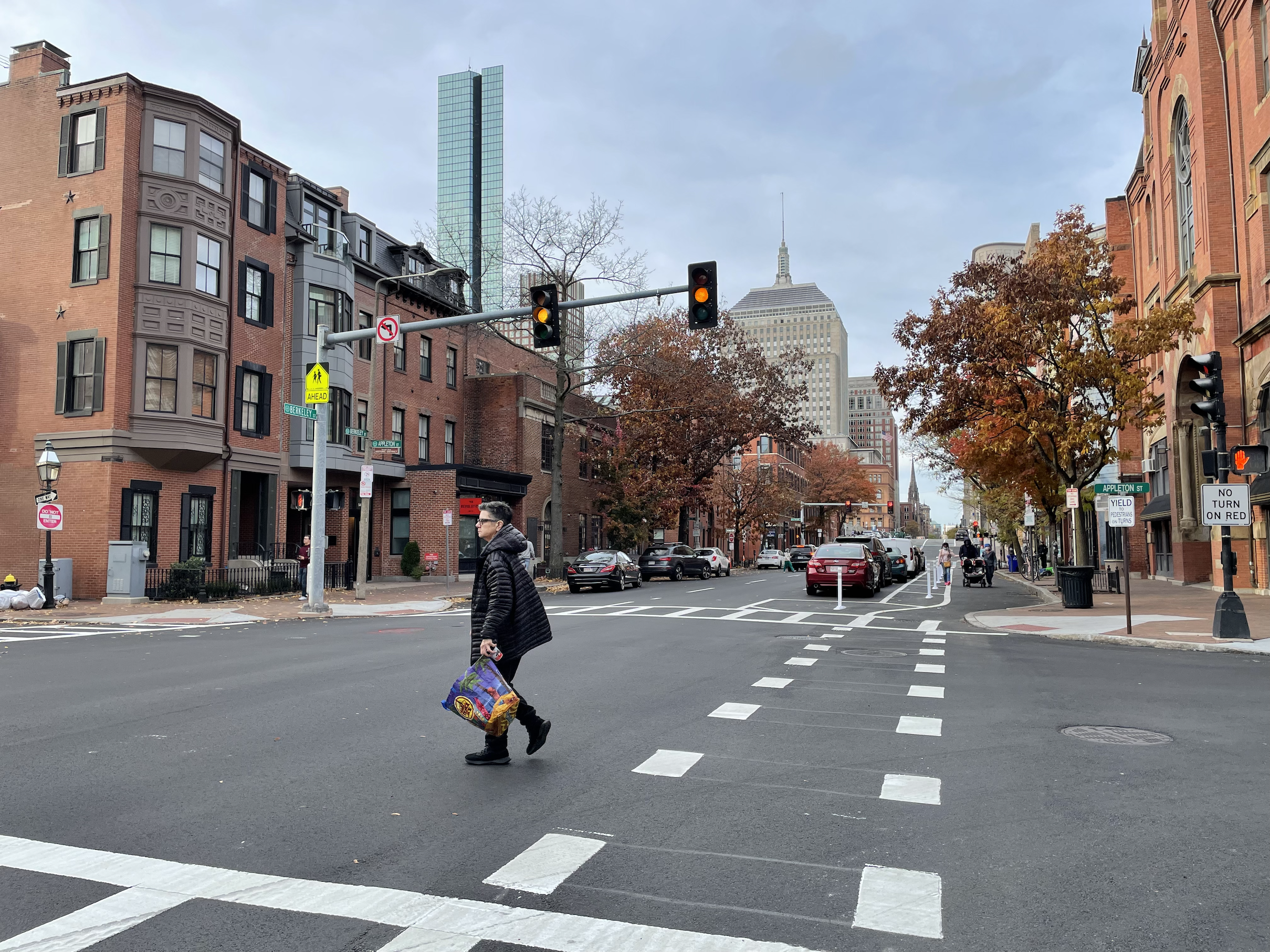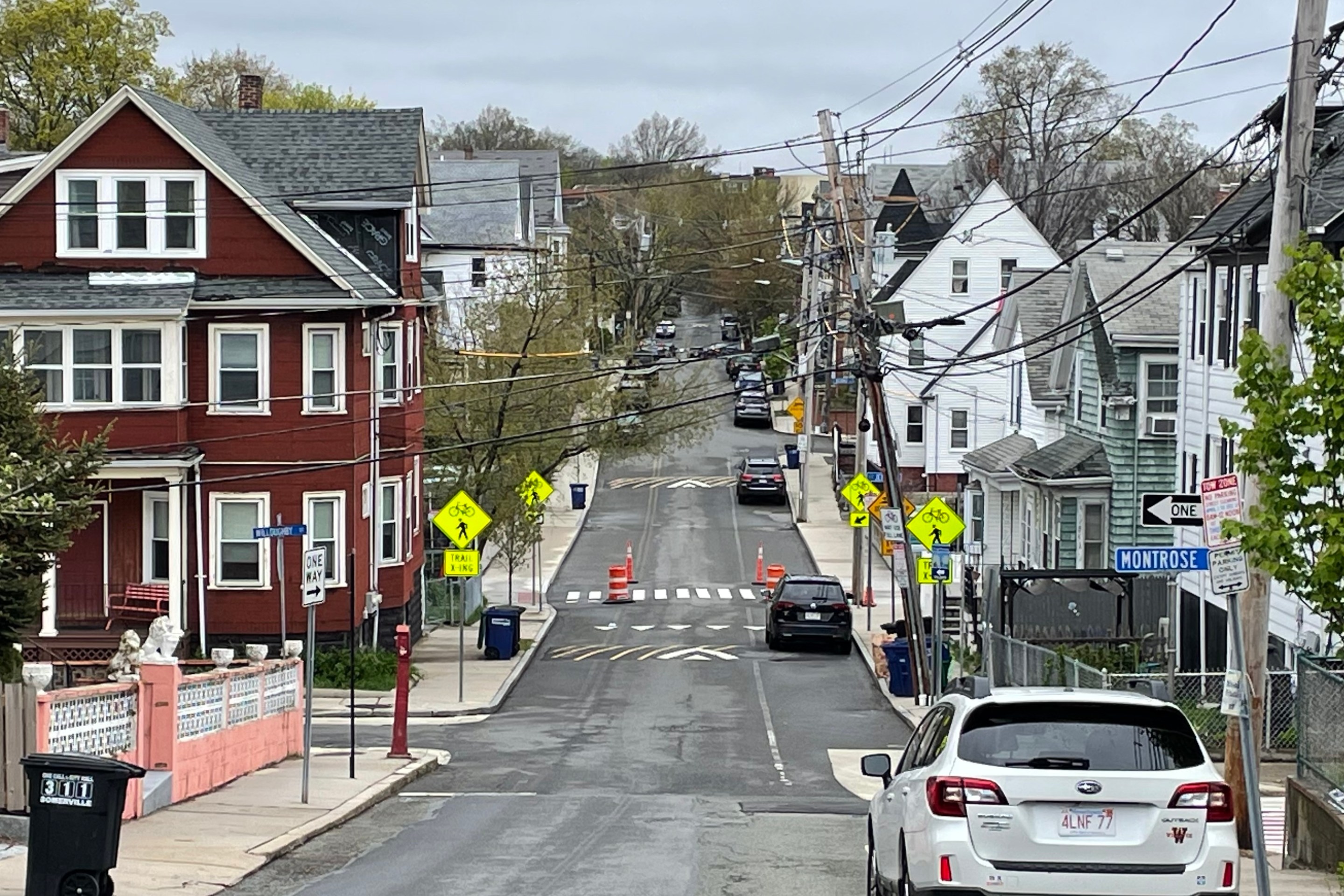Beacon Hill Boosts Regional Transit Authorities, With a Catch
7:32 AM EDT on July 30, 2019
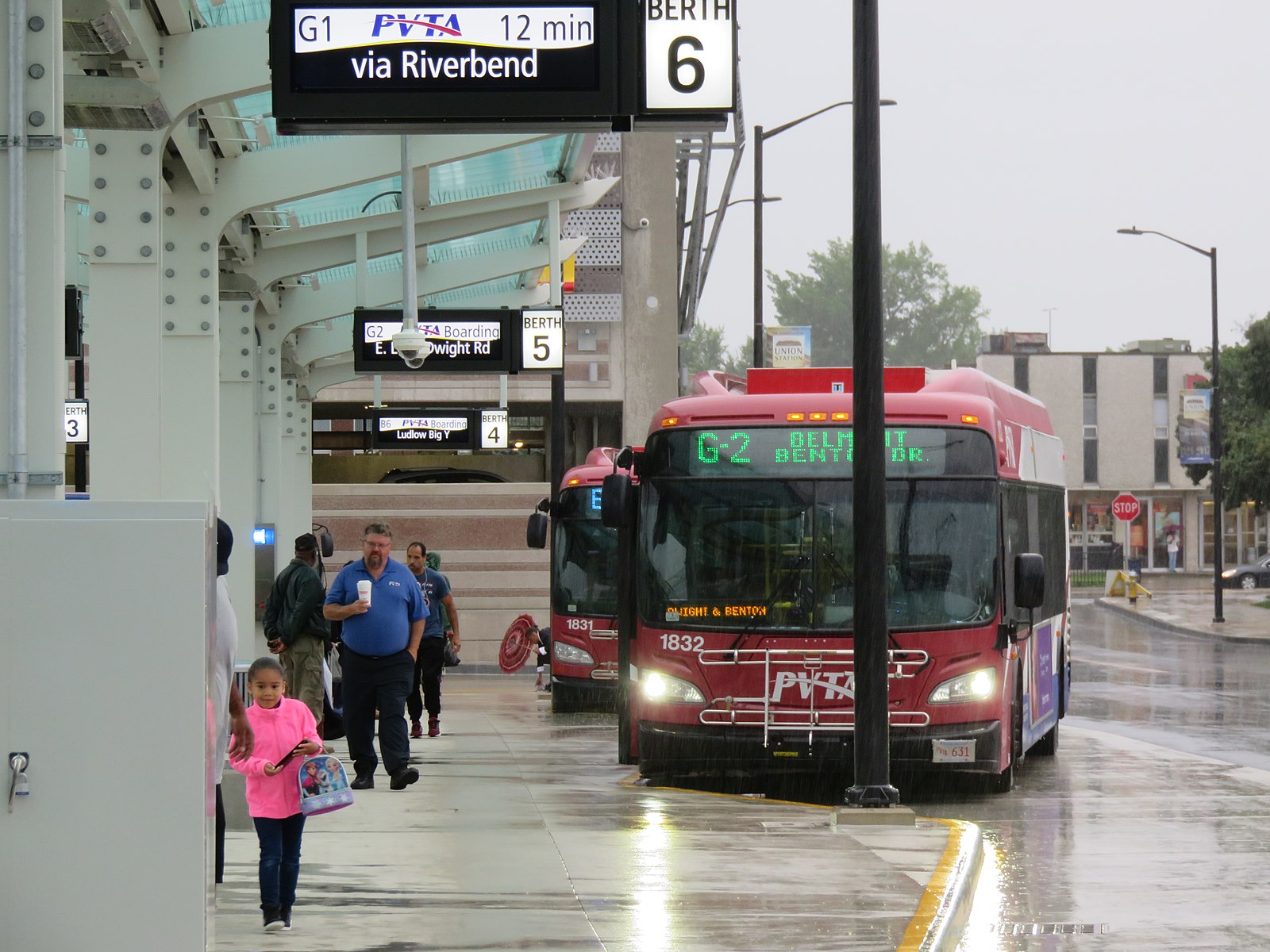
Pioneer Valley Transit Authority buses at the Springfield Union Station in July 2017. Photo courtesy of Wikimedia Commons user Newflyer504, licensed under Creative Commons.
A new budget passed in the Massachusetts State House last week would increase funding for the state's fifteen Regional Transit Authorities, which operate transit services for the millions of Bay State residents who live outside of the MBTA's fixed-route service area in greater Boston.
The fiscal year 2020 budget passed last week in the Massachusetts legislature includes $87 million in base funding for RTA operations, plus $3.5 million for one-time performance grants to be administered by MassDOT.
That's a significant increase over last year's funding levels, which allocated $82 million in base funding plus $4 million for pilot grants and $2 million more for special deficit relief. The $90.5 million total aligns with the levels recommended in April by a special state task force, which suggested $90.5 million in annual funding.
But the $3.5 million carve-out for one-time performance grants is a concern among RTA advocates, who say that the temporary funding hamstrings their ability to plan service improvements for the long term.
RTAs across the state rely on state funding to cover about 39 percent of their collective operating budgets. But unlike the Boston region's MBTA, which can bank on a one percent slice of the state sales tax as a dedicated source of revenue, the state's RTAs face uncertainty every year as legislators carve out RTA subsidies in competition for many other demands.
"The base funding is incredibly important. The RTAs know what they’re getting from local governments, and they have a pretty good idea what they’re getting from the feds, but the state funding is always a wild card," says Patrick Beaudry, the Manager of Public Affairs for the Pioneer Valley Planning Commission.
Transit advocates say that the state's history of low and unreliable funding for RTAs has undermined the agencies' ability to attract new riders.
"They’ve been underfunded and underinvested in for some time, so they’re seeing similar problems: dips in ridership because their buses are not convenient or frequent enough, and fare increases to maintain their budgets," says Matt Casale, Director of the 21st Century Transportation Campaign at MASSPIRG. "Generally, they provide good lifeline service for the people who rely on them, but it’s hard to see why people who have other options would choose the RTA service."
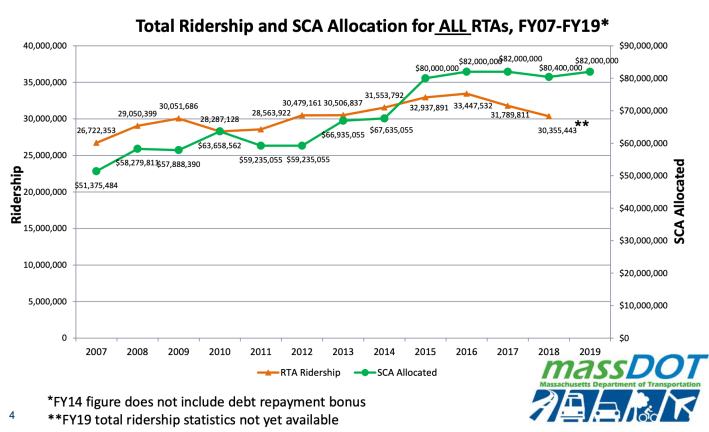
In its report, the state Task Force on Regional Transit Authority Performance and Funding acknowledged that "RTA service is highly variable. But with higher standards - and the means and mandate to achieve them and measure them - access to opportunity will open up for people, with benefits to the economy, congestion, pollution and social mobility."
Jeannette Orsino, executive director of the Massachusetts Association of Regional Transit Authorities (MARTA) says that last year's $4 million round of performance-based grants funded several worthy service expansions across the state, including Sunday bus service on Lowell's LRTA buses and expanded evening service on the New Bedford-Fairhaven bus route.
But that grant funding took the better part of the year to actually reach agencies, and it's uncertain whether the agencies will be able to afford to sustain those service improvements next year, when the one-time grants expire.
"With the one-time grant for pilot services, if people don't think it's going to be there in 10 months, they won't rely on it. It’s self-defeating process," says Orsino.
Orsino says that she and her allies will continue to advocate for more reliable funding for the RTAs at the Massachusetts State House. Their goal for next year is to get the full $90.5 million as recommended by the task force, plus a commitment from the Legislature to increase RTA funding annually with the rate of inflation so that agencies can plan service improvements for the long term.
Orsino thinks that the Legislature's leadership is on board with the idea.
"The Speaker has said and the President has said, it’s not just about the MBTA," says Orsino. "It’s about transit throughout the Commonwealth."
Stay in touch
Sign up for our free newsletter
